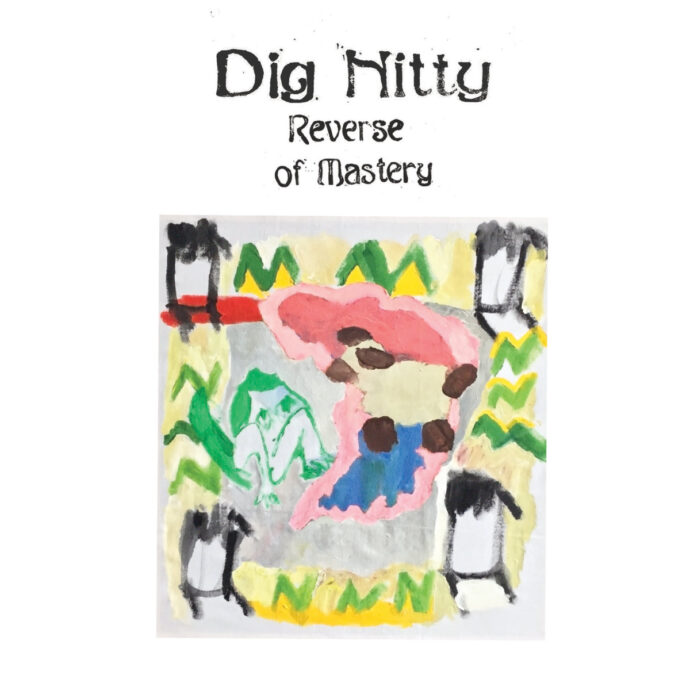What do you get when you cross delicate singing over harsher guitars, moments of pure noise following moments of gentle folky plucking, and song structures that quickly and seamlessly shift between the two? You get Dig Nitty and their debut album Reverse of Mastery. In terms of genre, texture, and mood, The New York-based quartet covers a lot of ground on their first LP. The terms “genre”, “texture”, and “mood” seem silly words to apply to Dig Nitty’s effort as they don’t appear to settle on one. On the contrary, the band prefers to blend a diversity of genres, textures, and moods to produce a sound that only they could’ve made. You could almost call it “anti-genre”, but that defeats the purpose of having a sound that can’t be named in one word. Genre N/A looks better.
You might ask, “what’s the motive for this bending of style?” and it might be a reasonable question as it’s an effect many acts go for, but that few actually get right. Dig Nitty, for the most part (the middle of the album’s energy sags a little), has gotten it right. The truth is they don’t need a much of a reason as it’s a mode of songwriting that’s based in feeling. It feels right when, at the end of “Blue Bard”, after four minutes of dissonant lullaby and light, long vocal lines, Dig Nitty breaks out into shattering noise and smashing cymbals. It takes you by surprise, but it feels right for the song. It feels right when, in “So Longer”, after a peacefully oblique exchange between the vocals and guitar, the tune breaks down into a lo-fi beathead sequence in three that closes the album. It’s like Big Thief on jazz collaborated with early Shlohmo.
The emphasis on the “feel” of Dig Nitty’s album is not to say there isn’t a great deal of theory at work here, because there surely is. They have a way of messing with popular standards for a folk, indie, noise, or rock group, all of which define aspects of their sound, but whose limitations they refuse. Reverse of Mastery’s obvious stand-out, “Angel Calling” is another hard-to-categorize track. The vocalist’s distorted, swooning voice calls through the mix like the song’s namesake: “I could hear my angel calling, through the warm and shaky leaves, I could hear her when she calls me, I can hear her when she leaves.” All this over fuzzy quarter notes from the guitar and a low heartbeat from the kick drum. It’s a rising sound that’s hard to ignore.
Dig Nitty’s playfulness is clear from their work on Reverse of Mastery. Their phrasing is always as you don’t expect it, in fact, very little is as you expect it, but it still makes sense. That is their strength: accessible experimentation. The album is a promising debut.
Rating: 7.5/10

